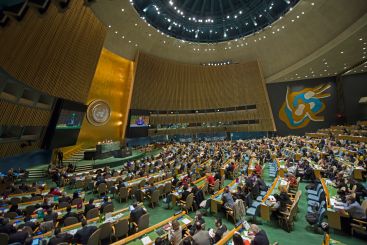
Top officials of the United Nations have decried prejudice against Islam or Muslims, in general.
The officials, including Secretary-General Antonio Guterres, spoke on Wednesday during a high-level virtual event to commemorate this year’s International Day to Combat Islamophobia.
The event came days after the UN Human Rights Council released a report indicating that “suspicion, discrimination and outright hatred toward Muslims” had risen to “epidemic proportions”.
Citing the report, Guterres in a video message gave recent examples of Islamophobia to include “disproportionate restrictions on the ability of Muslims to manifest their beliefs”.
Other manifestations, according to him, are securitisation of religious communities, limits on access to citizenship, socioeconomic exclusion and widespread stigmatisation of Muslim communities”.
Guterres added: “Unfortunately, far too often, stereotypes are further compounded by elements of the media and some in positions of power.
“Let us also remember that many acts of intolerance and suspicion may not appear in official statistics, but those acts degrade people’s dignity and our common humanity”.
He said discrimination undermines human development, adding that it prevents people and societies from achieving their full potential.
Besides discrimination, there are “policies of assimilation” seeking to “wipe out the cultural and religious identity of minority communities”, he said.
Guterres urged countries to push for policies that fully respect human rights and religious, cultural and unique human identity.
He also called for political, cultural and economic investments to strengthen social cohesion and combat religious bigotry.
Also in a video message, President of the UN General Assembly, Amb. Volkan Bozkir, described as a “deeply personal attack” any form of discrimination, including based on religion or belief.
Bozkir urged member countries to recommit to relevant international instruments, including the UN Charter and the Universal Declaration of Human Rights.
He expressed hope that this would give birth to national laws to end Islamophobia, hate speech and hate crimes.
The general assembly chief added that protecting people from extremism required a global strategy that includes defeating all forms of violent ideologies.
Mr Miguel Moratinos, High Representative of the United Nations Alliance of Civilizations (UNAOC), spoke in similar vein.
“Despite progress made in building bridges of understanding through the promotion of intercultural and interfaith dialogue, manifestations of anti-Muslim hatred persisted and morphed into different forms.
“Islamophobia cannot be seen in isolation from the worrying increase in xenophobia and hate speech against minorities including immigrants and other faith communities,” he said.
Moratinos said mutual respect, interfaith harmony and peaceful co-existence could be achieved with “broad space for everyone to practice the rituals of their religions or beliefs freely and safely”.
